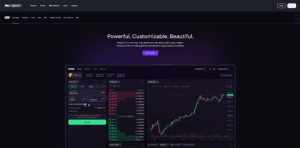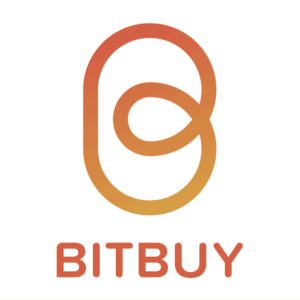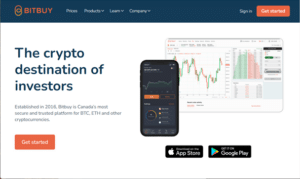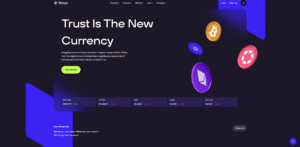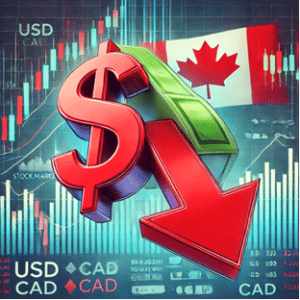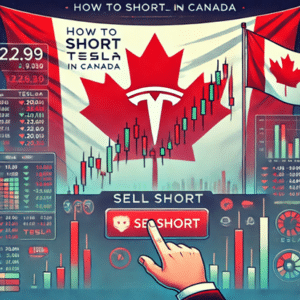Best Low-Fee Crypto Exchanges in Canada for 2025
Profile

Co-Founder
Thomas brings extensive experience in financial analysis and investment research. With a strong background in both institutional and retail investment sectors, Thomas ensures all content meets the highest standards of accuracy and relevance.
Follow on Twitter"Every piece of investment advice should be grounded in solid research and practical application. My role is to ensure our content provides real value to investors at every level."
My Favourite Writes:
Profile

Co-Founder
Dom is an experienced retail investor, learning his craft in what he likes to call the "hard way". Through many of these lessons he has crafted himself a sound investment strategy that has enabled him to make investing into a business not just a hobby.
Follow on Twitter"Financial clarity and integrity are the cornerstones of everything we do. We're here to ensure that your investment journey is built on a solid financial understanding and a sound strategic foundation."
My Favourite Writes:
Profile

Co-Founder
Adam is a passionate investor who created The Investors Centre (TIC) to combine his professional skills with his love for investment.
Follow on Twitter"Investment is about more than just numbers; it's about strategy, research, and the willingness to adapt."
My Favourite Writes:
How We Test
Our Commitment to Accuracy
At The Investors Centre, we maintain the highest standards of accuracy and reliability in all our investment education content. Every article undergoes rigorous fact-checking and review processes.
Our Testing & Verification Process
- Primary Research: We gather data directly from official sources including company reports, regulatory filings, and government databases.
- Platform Testing: Our team personally tests and evaluates investment platforms, creating accounts and documenting real user experiences.
- Expert Analysis: Content is reviewed by experienced investors and financial professionals within our team.
- Data Verification: All statistics, figures, and claims are cross-referenced with multiple authoritative sources.
- Regular Updates: We review and update content quarterly to ensure information remains current and accurate.
Review Standards
- Independence: We maintain editorial independence and disclose any potential conflicts of interest.
- Transparency: Our testing methodology and evaluation criteria are clearly documented.
- Objectivity: Reviews are based on measurable criteria and standardized testing procedures.
Corrections Policy
If errors are identified, we correct them promptly and note significant updates at the bottom of articles. Readers can report inaccuracies to our editorial team at info@theinvestorscentre.co.uk
Last Review Date
This article was last fact-checked and updated on: October 17, 2025
Disclaimer
Educational Purpose Only
All content on The Investors Centre is provided for educational and informational purposes only. It should not be construed as personalised investment advice, financial advice, or a recommendation to buy, sell, or hold any investment or security.
No Financial Advice
We are not authorised by the Financial Conduct Authority (FCA) to provide investment advice. Content on this website does not constitute financial advice, and you should not rely on it as such. Always consult with a qualified financial advisor or professional before making investment decisions.
Investment Risks
Investing carries inherent risks, including the potential loss of principal. Past performance does not guarantee future results. The value of investments can go down as well as up, and you may not get back the amount originally invested.
Accuracy & Completeness
While we strive to provide accurate and up-to-date information, we make no representations or warranties of any kind, express or implied, about the completeness, accuracy, reliability, suitability, or availability of the information contained on this website.
Third-Party Content & Links
This website may contain links to third-party websites and references to third-party products or services. We do not endorse, control, or assume responsibility for any third-party content, privacy policies, or practices. Users access third-party sites at their own risk.
Affiliate Disclosure
Some links on this site may be affiliate links. If you click on these links and make a purchase or sign up for a service, we may receive a commission at no additional cost to you. This does not influence our editorial content or reviews.
Personal Responsibility
Any action you take upon the information on this website is strictly at your own risk. We will not be liable for any losses or damages in connection with the use of our website or the information provided.
Regulatory Notice
Investment products and services featured on this website may not be available in all jurisdictions or to all persons. Users are responsible for complying with local laws and regulations.
Contact Information
For questions about this disclaimer or our content, please contact:
Email: info@theinvestorscentre.co.uk
Last Updated
This disclaimer was last updated on: August 2025
As someone that has experience in trading crypto internationally, I’ve seen firsthand how quickly exchange fees can eat into your profits. Whether I’m holding Bitcoin or trading altcoins, I always pay close attention to costs—they really add up. After trying out a range of platforms, I’ve learned the value of using exchanges that keep fees low without sacrificing security or ease of use. In this guide, I’ll share the best low-fee crypto exchanges in Canada, covering trading fees, funding options, and overall experience—so you can keep more of your gains where they belong.
Kraken Pro
CA Low Fee Score: 4.8/5
Trading and investing involve risk. Capital at Risk
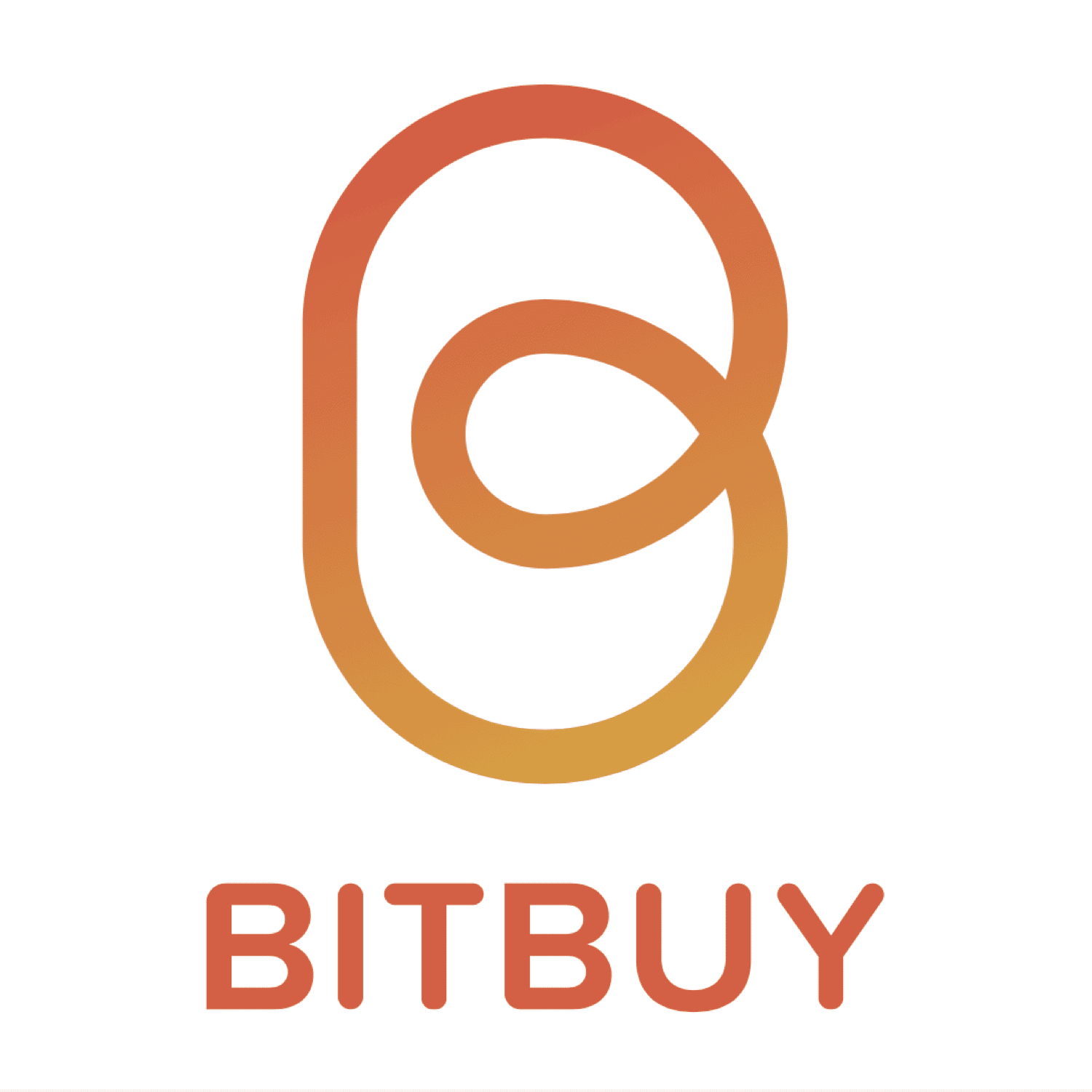
Bitbuy
CA Low Fee Score: 4.7/5
Trading and investing involve risk. Capital at Risk

NDAX
CA Low Fee Score: 4.45/5
Trading and investing involve risk. Capital at Risk

Newton
CA Low Fee Score: 4.45/5
Trading and investing involve risk. Capital at Risk
Quick Answer: What Crypto Exchange Has the Lowest Fees?
Kraken Pro is ideal for Canadians seeking low fees, with maker-taker fees starting at 0.16% and 0.26%, plus discounts for high-volume traders. Free Interac e-Transfer deposits and competitive withdrawal fees make it cost-effective for all users.
How Do These Exchanges Compare?
| Rank | Platform | Trading Fees (Maker/Taker) | Deposit Fees | Withdrawal Fees | Supported Crypto | Key Features |
|---|---|---|---|---|---|---|
| #1 | Kraken Pro | 0.16% / 0.26% | Free (Interac e-Transfer) | Varies by Method | 175+ | Advanced trading tools, global reputation, low fees for high-volume traders. |
| #2 | Bitbuy | 0.10% / 0.20% | Free (e-Transfer) | 1.5% (Wire Transfers) | 25+ | Trusted platform, regulated in Canada, user-friendly interface. |
| #3 | NDAX | Flat 0.20% | Free | $4.99 CAD (EFT) | 30+ | Transparent fees, excellent customer support, diverse crypto options. |
| #4 | Newton | Commission-Free | Free | Network Fees Only | 70+ | Simple and transparent, no trading commissions, supports a wide range of crypto. |
The Top 4 Crypto Platforms with the Lowest Fees
- Kraken Pro: A globally recognised exchange offering advanced trading tools, a tiered fee structure, and excellent support for high-volume traders.
- Bitbuy: Trusted by Canadians for its security, simplicity, and competitive fees.
- NDAX: Known for its flat-rate trading fees of just 0.2% and excellent customer support.
- Newton: Provides commission-free trading with transparent spreads and easy-to-use features for beginners.
Quick Outlook for 2025
The Canadian cryptocurrency landscape is expected to grow significantly by 2025, driven by increasing regulatory clarity and competition among exchanges. Here’s what to watch for:
- Lower Fees Across Platforms: As competition intensifies, trading costs will continue to decrease, benefiting Canadian traders.
- Enhanced Security Features: More platforms are likely to adopt advanced security measures, such as biometric authentication and expanded insurance coverage for funds.
- Wider Crypto Offerings: Canadian exchanges are expected to support a broader range of cryptocurrencies, including eco-friendly and utility-driven tokens.
By staying informed about these trends, Canadian traders can make smarter decisions and choose exchanges that align with their trading goals.
Pros & Cons
- High security
- Aadvanced tools
- CAD support.
- Slower customer support during peak times
- Slightly higher fees.
-
How does Kraken’s fee structure work?
-
What makes Kraken Pro suitable for Canadian traders?
-
Kraken vs. Kraken Pro: Key Differences
Kraken Pro offers one of the most competitive fee structures in Canada, designed to cater to both casual and high-volume traders.
- Maker fees start at 0.16%, while taker fees begin at 0.26%. These fees can be significantly reduced with tiered discounts based on trading volume, making Kraken Pro especially attractive to frequent traders and institutional investors. High-volume traders can enjoy fees as low as 0.02%, providing substantial savings.
- Free deposits are available via Interac e-Transfer and SEPA, ensuring Canadians can fund their accounts without incurring extra costs.
- Withdrawal fees vary by cryptocurrency or fiat currency, but Kraken Pro is known for its transparent pricing, allowing users to easily understand their costs before executing transactions.
This clear and competitive pricing model, combined with Kraken’s reputation for reliability, makes it a leading choice for Canadian traders who want to minimise fees without compromising on features or security.
Kraken Pro stands out as a robust and feature-rich platform tailored for both new and experienced Canadian traders:
- It supports 175+ cryptocurrencies, including major coins like Bitcoin, Ethereum, and Litecoin, as well as niche altcoins, offering a diverse range of trading opportunities.
- Advanced trading features, such as margin trading (up to 5x leverage), futures contracts, and staking, make it ideal for professional traders looking to maximise returns or hedge against market volatility.
- High liquidity ensures that trades are executed quickly and at competitive market prices, which is essential for large transactions or time-sensitive trades.
Additionally, Kraken Pro is globally regulated, ensuring compliance with Canadian and international laws. The platform implements bank-grade security measures, such as cold storage, two-factor authentication (2FA), and regular audits to safeguard user assets. These features, combined with its user-friendly Pro interface, make Kraken Pro one of the most reliable and secure exchanges for Canadian users.
- User Experience: Kraken offers a simple interface for beginners, while Kraken Pro provides advanced charts, order types, and deeper market insights for experienced traders.
- Fees: Kraken charges higher instant buy/sell fees (up to 1.5%), whereas Kraken Pro uses a maker-taker model with significantly lower fees (starting at 0.16% maker / 0.26% taker).
- Trading Features: Kraken supports basic spot trading and staking, while Kraken Pro includes margin trading (5x leverage), futures, and advanced tools for professionals.
- Market Access: Kraken suits casual traders, whereas Kraken Pro offers higher liquidity and faster execution for high-volume trading.
Kraken is best for beginners, while Kraken Pro is tailored for serious traders looking for lower fees and advanced features.
Don’t invest unless you’re prepared to lose all the money you invest. This is a high-risk investment and you should not expect to be protected if something goes wrong. Take 2 mins to learn more.
Pros & Cons
- Low fees
- Canadian focus
- Quick sign-up
- High fees
- No CAD support.
-
What are the Fees?
-
What Cryptocurrencies are Available?
-
How Safe is the Exchange?
- Trading Fees: Bitbuy offers 0.10% for makers and 0.20% for takers, with a transparent fee structure.
- Deposit Fees: Free CAD deposits via Interac e-Transfer for amounts over $200.
- Withdrawal Fees: CAD withdrawal fees are 1.50%, capped at $20.
Bitbuy offers 25+ cryptocurrencies, focusing on the most popular assets.
It has 95% cold storage, regular audits, and two-factor authentication.
Don’t invest unless you’re prepared to lose all the money you invest. This is a high-risk investment and you should not expect to be protected if something goes wrong. Take 2 mins to learn more.
Pros & Cons
- High security
- Competitive fees
- Eexcellent liquidity
- Fewer cryptocurrencies
- Geared towards advanced traders
-
What are the Fees?
-
What Cryptocurrencies are Available?
-
How Safe is the Exchange?
- What are the Fees?
Trading Fees: NDAX has a flat fee of 0.20% per trade, regardless of volume. - Deposit Fees: Free CAD deposits via Interac e-Transfer or wire transfer.
- Withdrawal Fees: Fixed CAD withdrawal fee of $4.99.
NDAX offers 30+ cryptocurrencies, including Bitcoin, Ethereum, and Chainlink.
NDAX prioritises safety with multi-signature wallets, 95% cold storage, and compliance with Canadian regulations.
Don’t invest unless you’re prepared to lose all the money you invest. This is a high-risk investment and you should not expect to be protected if something goes wrong. Take 2 mins to learn more.
Pros & Cons
- High security
- Competitive fees
- Eexcellent liquidity
- Fewer cryptocurrencies
- Geared towards advanced traders
-
How does Newton’s fee structure compare?
-
Is Newton a good option for Canadian users?
Newton offers commission-free trading, meaning users only pay for the bid-ask spreads, which are generally competitive. The platform does not charge deposit fees, and withdrawal fees are limited to network fees, making it one of the most cost-effective platforms for Canadians.
Newton’s simple and transparent fee structure is especially appealing to beginners who want to start trading without worrying about hidden costs.
Yes, Newton is a great choice for Canadians who prioritise simplicity, transparency, and low costs.
- The platform supports 70+ cryptocurrencies, giving users access to a wide range of assets for trading and investment.
- Its commission-free trading model and lack of deposit fees make it particularly appealing for those just starting out in crypto.
- Newton’s intuitive mobile and desktop apps simplify portfolio management, allowing users to trade on the go.
With its user-friendly design and cost-effective structure, Newton is especially suited to beginners looking for an accessible way to enter the crypto market.
Don’t invest unless you’re prepared to lose all the money you invest. This is a high-risk investment and you should not expect to be protected if something goes wrong. Take 2 mins to learn more.
What Are Low-Fee Crypto Exchanges?
When I say low-fee exchanges, I mean platforms that keep trading, deposit, and withdrawal costs to a minimum. I use a mix of long-term holding and active trading, so keeping fees low makes a big difference.

Kraken Pro is one I use regularly. It is great for high-volume trading, with lower fees as you trade more, and it supports CAD deposits and withdrawals—which saves a lot on funding costs.
But not all platforms are transparent. Some hit you with small trading fees, then pile on high withdrawal costs or hide fees in the spread. And if you’re using a credit card? Expect a serious markup.
Thankfully, many Canadian options offer low fees, CAD support, and no surprises.
How do I Choose a Low-Fee Crypto Exchange in Canada?
When I first started, I focused only on fees — but I’ve since learned there’s more to it. These days, I look at the full picture.
First, I compare all the fees—trading, deposit, withdrawal, and spread. Some exchanges look cheap at first but sneak in costs elsewhere.

Security is a must. I check for 2FA, cold storage, and ideally, insurance on digital assets. If an exchange skimps on security, I’m out. I try to use regulated Canadian platforms that are transparent, easy to use, and built for long-term reliability.
Payment options matter too. I want seamless CAD support through Interac e-Transfer or bank transfer. Some platforms make this easy; others are crypto-only, which can be a hassle.
And finally, I check the coin selection. I don’t just stick to BTC and ETH—I like exploring smaller tokens, so I prefer exchanges with a broader range.
What are the different Types of Crypto Exchanges?
Not all crypto exchanges are built the same, and I’ve learned to choose based on what I need at the time. Here’s how I break it down:
- Centralised Exchanges (CEXs)
- These platforms are fast, easy to use, and handle everything—from CAD deposits to wallet storage. Support is solid too. The tradeoff? You don’t hold your keys, and KYC is required.
- Decentralised Exchanges (DEXs)
When I want more control or access to lesser-known tokens, I use DEXs. No accounts, no KYC—you trade directly from your wallet.
Peer-to-Peer (P2P) Platforms
I’ve used P2P platforms when I needed privacy or alternative payment methods. They’re flexible but slower and a bit riskier, so I stay cautious when using them.
| Exchange Type | Pros | Cons |
|---|---|---|
| Centralised (CEX) | Beginner-friendly interface | You don’t control your private keys |
| High liquidity and fast trades | Requires KYC/ID verification | |
| Supports fiat deposits (CAD) | Vulnerable to hacks | |
| Customer support available | ||
| Decentralised (DEX) | No account or ID needed | No fiat support (crypto only) |
| You keep full control of your crypto | Complex for beginners | |
| Wide range of tokens | No customer support | |
| Often lower fees | Risk of slippage | |
| Peer-to-Peer (P2P) | More privacy and payment flexibility | Higher risk of scams |
| Direct trading with users | Slower transaction times | |
| Potentially low or no fees | Less user protection |
Who is Regulating Crypto in Canada?
Canada has made solid progress in regulating crypto, which gives me more confidence when picking an exchange. If it’s registered and compliant, I’m far more likely to trust it with my money.
- FINTRAC Registration
- Any legitimate exchange in Canada needs to register as an MSB with FINTRAC. That means they collect KYC info, monitor for suspicious activity, and follow anti-money laundering laws.

- CSA Oversight
- Since 2021, the Canadian Securities Administrators (CSA) as required exchanges to register as restricted dealers or get securities licenses. This means they are being held to real financial standards and must protect client funds.
- Provincial Rules
- Regulations vary by province. In Ontario, the OSC only allows registered platforms. I’ve seen exchanges like Binance limit services here due to stricter rules, so I always check a platform’s status before signing up.
Bottom line: I’d rather pay slightly higher fees and use a regulated exchange than risk my funds on an unverified platform.
Key Security Features I Always Check
| Security Feature | Why It Matters |
|---|---|
| Two-Factor Authentication (2FA) | First thing I enable. Adds a layer of protection using apps like Google Authenticator or YubiKey. |
| Cold Storage | I look for exchanges that keep at least 95% of funds offline to avoid online hacks. |
| Encryption & Infrastructure | I want bank-grade encryption, DDoS protection, and regular audits. No transparency? I move on. |
| Regulatory Compliance | I stick to FINTRAC-registered exchanges that follow KYC rules—it builds trust and accountability. |
| Insurance Coverage | Some platforms insure cold storage assets—great backup if something major goes wrong. |
| Withdrawal Whitelisting & Freezes | I whitelist addresses and appreciate when I can freeze my account if I notice anything suspicious. |
What do I need to consider besides Low Fees?
Fees matter—but they’re just one part of the puzzle. I always evaluate exchanges holistically.
- Regulation & Security: I stick with Canadian-compliant platforms that offer 2FA, cold storage, and insurance. Kraken Pro is a standout for its security and transparency.
- User Experience: If a platform feels clunky, I move on. Kraken Pro’s interface is clean and efficient—perfect for both beginners and pros.
- Asset Selection: I trade both major coins and altcoins, so I look for exchanges with a wide variety. Kraken Pro offers 175+ cryptos, which more than covers my needs.
- Liquidity: For larger trades, liquidity is key. Kraken Pro delivers with fast execution and minimal slippage.
- Customer Support: When I need help, I want real answers. Kraken’s live chat and support guides have never let me down.
What are the Risks of using Crypto Exchanges?
Hacks, phishing scams, and users losing funds after leaving crypto on an exchange too long. That’s why I always move large amounts to a hardware wallet I control.
Regulations matter too. I’ve seen some platforms get blocked in provinces like Ontario. If an exchange isn’t registered or regulated, it could vanish overnight—or cut off your access.
I stick with FINTRAC-registered Canadian platforms that follow proper KYC/AML. It adds a bit of friction upfront, but the peace of mind is worth it.
Final Thoughts
Getting into crypto can feel overwhelming, but the right exchange makes all the difference. Whether you’re new to trading crypto or trading regularly, low-fee platforms like Bitbuy and Kraken offer something for every Canadian trader.
I’ve personally used each of them and found them to be reliable, affordable, and well-suited for Canadian users. Once you understand their fees, security, and features, choosing the right one becomes much easier.
And with Canada’s crypto scene growing fast, these platforms keep getting better—adding new tools, lowering fees, and improving transparency. No matter your strategy, there’s a solid, low-cost exchange out there for you.
FAQs
What is the cheapest crypto exchange in Canada?
The cheapest crypto exchange can vary depending on what type of trades you’re doing. For low trading fees, NDAX and Bitbuy are popular options among Canadians.
Are there any crypto exchanges in Canada with no fees?
While most exchanges charge something—either trading, deposit, or withdrawal fees—some offer zero-fee trading promotions or waive fees for certain payment methods. However, keep in mind that no-fee platforms may make money through spreads (the difference between buy/sell prices).
Is it safe to use a crypto exchange in Canada?
Yes, as long as you choose a regulated and reputable platform. Look for exchanges registered with FINTRAC in Canada. Platforms like Bitbuy and NDAX, are considered safe and compliant with Canadian regulations.
Can I buy crypto in Canada without paying high fees?
Absolutely. The key is to compare platforms based on trading fees, funding options, and spreads. Avoid buying crypto with credit cards, as those usually come with higher fees. Instead, consider using Interac e-Transfers or bank transfers where available.
Do Canadian crypto exchanges charge for withdrawals?
Some do, and some don’t. NDAX, for example, charges a flat CAD withdrawal fee, while others may offer free crypto withdrawals to certain wallets. Always check the exchange’s fee schedule before making large withdrawals.
Are decentralised exchanges available in Canada?
Yes, you can access decentralised exchanges in Canada. These platforms don’t require ID or registration. However, they also don’t support CAD directly—you’ll need to use crypto already in your wallet to start trading.

